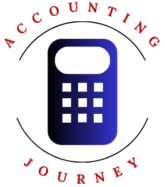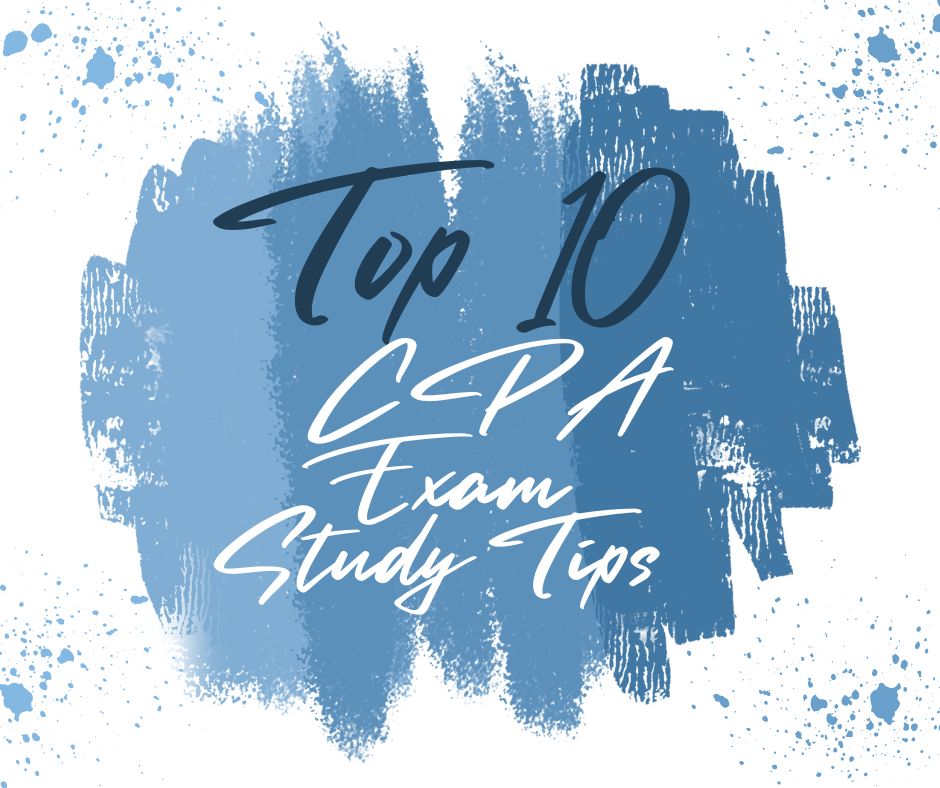Those who are interested in starting, or are already somewhere on their journey of the CPA exams knows that it can be a scary, labor-intensive endeavor. As a recent “CPA Exam Graduate” myself, I often get asked by my non-CPA colleagues about what my secret strategies were for passing the CPA exam. So, these are my top 10 CPA exam study tips that helped me pass most of my exams on the first try. Of course, each individual is different, but the below tips helped me, and I hope that they are able to help you too on this CPA journey.
1) Choose A Good Study Program
Most individuals who take the CPA exam, use one of the many study programs available for purchase to help them study. It is possible to access some examples of CPA exam questions on the AICPA exam website, however, for most people, this is used as a supplement to their studies. I would never recommend relying only on self-study or expecting your college courses to be enough to get you through the exams. The CPA exam questions have a very unique format and way of asking about topics that can easily trick even the best of accounting students in school. Do your research and invest your money into a proper review course. Some of the most popular review courses include Becker, Roger, Wiley, Gleim, Surgent, and Ninga Review.
2) Develop A Good Study Routine
If I had a penny for every time I heard someone jokingly express that they skipped their study session, or were only half paying attention during that time, I’d be able to quite my accounting job by now for the wealth that I’d have! Routine. Routine. Routine. The CPA exams are not a sprint, but a marathon. One of the most important aspects of studying to nail down when you start is to have a good study plan. Know exactly when you plan to take the exams, how many weeks you plan to study for, and how much time to dedicate to studying each day are extremely important.
Also, studies have shown that studying in the same place and at the same time each day are also helpful tools in getting into the proper study mindset and being more productive throughout your studies.
Also, short consistent study sessions are generally more beneficial then trying to study a million hours each day, only to burn out after the third day, then not study for several days, then restart again. If you do this, not only will it not be as effective as daily study and review, but you will end up putting in the same or less study hours in then if you were to have done less, but more consistently.
Lastly, quality over quantity is key. I think often we focus too much on how many hours one should study for each exam. It’s not really about “putting in hours”, but rather, it’s about studying enough to learn the material, and that will greatly depend on the quality of your study.
3) Don’t Expect Lectures To Give You All The Information That You Will Need For The Exams
Watching lectures is a very passive form of study that often isn’t very efficient at actually preparing you for the exams for most people. Often, we watch lectures to feel as though we’ve accomplished something, but then, most will find that as soon as they begin to do practice problems, the lectures don’t necessarily give all of the material needed to answer the questions.
Plus, even for review programs that go through very detailed explanations of concepts, one can only hold their attention so long on a video. Instead, I recommend using the videos as an introduction to become familiar with the main concepts of a given section of an exam that you are studying for.
One thing that would help me is that I would often listen to the lectures while I was driving to or from work, or while I was cleaning my house. I’d be able to get a general understanding of all of the important topics which would prepare me for my deeper study through the multiple-choice questions. However, I’d save time by multi-tasking with other mundane tasks to accomplish more in a shorter period of time. Now of course, if you are doing a task which will cause you to tune out of the lecture altogether, than I wouldn’t recommend this approach. You should only do tasks that still allow you to process the main lecture points. Saving time on not over studying video lectures, will allow you to have more times for the meat and potatoes of your study – the Multiple-Choice section.
4) Multiple Choice Practice Questions Are The Key
Ask anybody you know who has successfully passed all sections of the CPA Exam and you will likely hear them talk about the importance of multiple-choice questions. Because the CPA Exam tests material in a very specific way, the more multiple-choice questions taken, the more familiar you will be with the actual exam questions and how they are tested on testing day. The key here to studying multiple choice questions is to answer each question, and then to read the explanation of each question as to the right and wrong answers. These question explanations should be the core study material for learning each core concept and their related details.
5) Practice Task Based Simulation Questions, But Not Until Right Before Taking The Exam
For most of the CPA Exams, the Task Based Simulation portion of the exam should not be overlooked as it accounts for 50% of most of the exams. That being said, the problem with these practice problems is that they each take a large amount of time to complete. You can easily spend hours on just a few of these questions when you are first starting out. Plus, most of these questions are simply an extension of the multiple-choice questions. For example, if a multiple-choice question asks you to solve part A, then the task-based simulation will ask you to solve parts a, b, and c. The content is the same, only longer problems. Therefore, for most people, multiple choice questions should be used for learning the material that will be tested on the task based simulations. Then, once you feel confident in the study material, that is the time to test your knowledge through some of the longer task based questions to get familiar with the format and to make sure you fully understand how the exam wants you to answer a question.
6)Take Notes, Only If It Works For You
Some people love taking notes and swear by it, if this works for you to help you remember the material, great, but otherwise I would suggest to skip it, unless your note taking is more through flashcard memorization of vocab or mnemonics as this may help with repetition. However, generally this advice goes back to the time concept. Taking notes takes a lot of time, and unless you see an obvious helpful advantage, go ahead and skip this, and focus on taking and reviewing multiple choice questions instead.
7) Read Through The Textbook For Difficult To Understand Topics, Or For Memorization Practice
This tip goes back to the taking notes and reviewing video lectures tips above. Time and efficiency are the two most important things to consider when studying for these exams. Generally, it is more efficient to learn through actually taking review questions, then trying to memorize the textbooks before getting to review. However, I would recommend using the text after completing a fair number of questions, when needed to get a deeper understanding of specific principals that you are studying that might be particularly challenging. Use the text as an additional resource when needed for specific topics, but go ahead and skip reading through every word, and highlighting the rainbow in those pretty pages.
8) Build Review Into Your Study Routine
I’d recommend building in at least two weeks of full review prior to taking your exam. During this time, focus on reviewing a handful of multiple-choice questions each day of every topic that you’ve covered over the course of your study, paying special attention to the topics that have been most difficult, while also making sure to do a light refresher on some of the easier topics that you haven’t looked at in awhile. Also use this time to hone in on your task based simulation skills. It’s also super helpful to periodically review what you’ve been studying already on a daily or weekly basis, if possible. Repetition is crucial with this exam. Just make sure that when reviewing multiple choice that you are making sure that you aren’t just memorizing answers but really understanding the topics.
9) Don’t Solely Rely On Performance Metrics From Review Programs For Gauging Progress
Most study course will have some type of review metric to gauge your progress throughout the course. This may just be quiz results, or specific benchmarks to target. Generally, it is common to do better on the overall exam then you might perform through your review quizzes. For example, even if you are only getting 70%s on review quizzes, this could still mean you will be able to get a passing score on exam day.
The real test to knowing whether you are ready to take an exam is how well you understand the multiple-choice questions that you are taking. When you know why an answer is right, and why an answer is wrong, then you can be confident in your ability to know when you are ready to take your exam. If you are just memorizing answers, then that will not be enough. The exam questions you see on practice tests will not be the exact same questions you see on the actual exam, therefore, understanding the concepts and rules is critical. When you are able to go through each section of an exam and while taking the multiple-choice questions, you are able to either get most of them right, or understand why you got some wrong, this is a good indication that you are ready to take the exam.
10) Take Sufficient Time To Study For The Exams, But Not Too Long
Whether you have a full time job, or are a full-time exam studier at the moment, this will effect how much time you are able to dedicate to study each day, and therefore, how long you will need to study for each exam. You should be taking enough time to adequately prepare for each exam. I’d recommend getting your NTS (Notice to Schedule) as soon as you start studying, but I would not recommend scheduling your actual exam until you are almost ready to take it. You don’t want to be one of those people who ends up having to take an exam before they’re ready because they didn’t plan out enough time to study, or just procrastinated their study.
However, that being said, don’t take too much time to study. The more weeks you take to study, the more likely you will begin to forget some of the earlier content. Most people who I know who have passed their exams on the first try, typically are those that actually studied over a shorter period of time. Is that just a coincidence? Maybe, or maybe not, but I think there might be something there. Be prepared and take the time you need, but don’t prolong the study sessions. Study hard and take your exams with confidence. You got this!
Don’t Give Up
Remember that this is YOUR journey, and you should do what ultimately works for you. The CPA Exams are not about being the smartest person in the room, but rather being the most diligent person in the room. Keep at it, and eventually you will pass and be able to take pride in all that you’ve accomplished!

